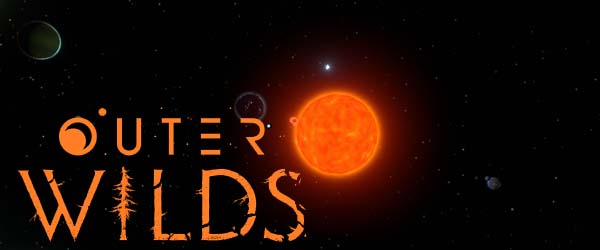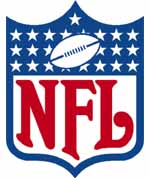
Perspective shifts were used effectively in The Last of Us.
I'm a fairly outspoken critic of the first Last of Us. I felt that the gameplay was fairly shallow (though very well-produced), and focused too strongly on the zombie apocalypse plot at the expense of the surrogate father-daughter story that was being told. The best and most memorable moments were the opening scene in which you play as the scared 10-year-old girl as the zombie apocalypse breaks out, and the part where Joel and Ellie pet the giraffe. And maybe the very end where Joel confronts the doctors in the operating room, for those 40% of us who actually completed the game. And the only enemy encounter that was actually good and meaningful was the one-on-one cat-and-mouse boss fight with the cannibal David in the burning restaurant. Those sequences make up the emotional linchpins of the game and are genuinely moving moments of humanity [or inhumanity], and the perspective shifts that reinforce or contextualize those moments are -- dare I say -- artistic! But then 90% of the actual game that you play is rote cover-based shooting separated by stealth-lite and the occasional "puzzle" that never gets much more complicated than propping a ladder up against a wall.
For being a game about a grieving father eventually finding meaning in a surrogate daughter, it never really let the player act out the interactions between the characters. She was invisible to enemies in stealth and mostly took care of herself in combat. She lacked an upgrade tree and didn't really improve her combat or stealth abilities much over the course of the game, so there was also no ludic development of her character, and the player never feels like you are teaching her how to survive, or doing any of the surrogate father stuff that the game is supposed to be about.
So yeah ... overrated... Still good! But like a 7 instead of a 10 out of 10. "Sacrilege!" I know.
The companion isn't the sole focus of the narrative this time around.
This time, however, the relation between the player character and your NPC companion(s) is not the core of the story. This game is not about the character interactions that the player has no control over; this game is about the violence that the player absolutely has total control over! Ellie and Dina's relationship is the B plot behind the revenge plot, and gets further relegated to a C or D plot in the second half of the game. They're already friends/lovers before the game even begins, so there isn't much in the way of building a relationship. In fact, Ellie's story this time around seems to be more about how being a moody, self-absorbed teenager just pushes Ellie away from the people who care about her. It's more a game about being anti-social, which fits much better with both games' core gameplay.
Cycle of Violence
Now, I cannot talk about the artistic merit of the game without talking about the back half of the campaign. Naughty Dog may have embargoed publications from reviewing the second half of the game, but I'm not going to let that stop me from talking about it. Naughty Dog has no place telling critics or reviewers what they can and cannot tell consumers about the game. I'm personally not offended by the second half of the game like some other people are (I think it's the better half of the game, and Naughty Dog is lucky that I'm going to talk about it, because otherwise the game is a D-). I am, however, offended by Naughty Dog thinking they can impose a muzzle order on reviewers, even if it genuinely was in the interest of "not spoiling the game" (as opposed to just trying to hide a controversial element of design that might turn off some consumers). So yeah, I'm going to try to avoid specific spoilers of major plot developments, but this review will contain minor or moderate spoilers about the overall structure of the game. [More]

I had previously written about how the Madden NFL video game series from Electronic Arts has failed to simulate football by using a shortened quarter length to keep games around 30 minutes long. These shortened games lead to a rushed pace of play, fundamentally change the strategy of football, and also affect other aspects of balance and game design that are not easily fixed by simply setting the game to 15-minute quarters.
This time, I'm going to move away from the rules of the game, and look at more specific game mechanics that fail to simulate how real football players actually play football. This installment, and the next, will look at how real NFL quarterbacks make reads and go through progressions, and then at how defensive pressure packages are used to disrupt those reads and progressions to force the quarterback to make bad decisions. Then we'll look at how Madden completely fails to model these aspects of football, and the various ways that EA and Tiburon have tried to fix or cover up these problems over the years. Some have worked; others have been little more than band-aid solutions.
See this blog in video essay format on my YouTube channel!
How Madden succeeds at simulating football: pre-snap reads
Let's start with some good faith towards EA and Madden and talk about the things that the game actually does get fairly right: pre-snap reads. As a QB in Madden, you'll be looking at whether the middle of the field is open or closed before the snap, and this will give you a reasonably accurate idea of whether the route concept that you called will be successful. If you call a cover 2-beating post or dagger concept, but the defense comes out in a Cover-3 look, with a safety in the middle third, then you will be well-served to either adjust the routes using hot routes, audible out of the play entirely, or call a timeout to regroup and come up with another play.
Madden players can make sure
that a blitzing Mike LB is blocked.
Over the past few years, Madden has also gradually introduced concepts such as reading the Mike linebacker. This determines who the blockers will prioritize blocking, which can be important if the defense sends multiple blitzers. Identifying the most dangerous blitzer as the "Mike" ensures that someone on your offensive line will try to block him. Usually, this will be the inside-most blitzer (the one lined up closest to the center). You can also slide pass protection left or right to deal with an overload blitz, and can also assign a double team in order to neutralize a particularly dangerous pass rusher.
To Madden's credit, it gets most of this stuff right. Hopefully all the mechanics that I just mentioned are still in the game by the time you're reading this, and they haven't been stripped out by Tiburon in order to make room for some new gimmicky feature...
A Madden user can make many of the same reads that a real NFL quarterback would. The game will even highlight the key reads before the snap on certain plays to remind the user how to execute the selected play. Good stuff. I don't have many complaints here. Defenses can even disguise coverages, can fake blitzes, and use other similar tactics to try to fool the human user and force a bad read. Again, good stuff. The problems begin when a CPU QB steps on the field, and only get worse when the ball is snapped. [More]
7b2229b6-0904-4469-80e9-7f938319478b|0|.0
Tags:Madden, Madden NFL, How Madden Fails to Simulate Football, EA, EA Sports, Electronic Arts, Tiburon, football, simulation, sports, YouTube, quarterback, passing, blitz, QB Vision Cone, Backbreaker, Maximum Football 2019

I refuse to give money to Epic,
and waited for Steam release.
Outer Wilds was one of my most anticipated games in 2019. As such, it was immensely disappointing that it became a timed exclusive for the Epic Games Store. I have a lot of issues with how Epic Games runs its business, and with the ethics (or lack thereof) of the company, and so I refuse to give them a single penny of my money. Our daughter plays Fortnite with her friends, and we're not going to disallow her from doing such (and besides, her socialization options were incredibly limited during the COVID-19 pandemic lockdown, and I think playing Fortnite stopped her from going stir crazy). But I've told her that the first time she asks me for money to buy V-Bucks, it will be the last time she plays the game.
I could have bought Outer Wilds on PS4 a year ago, but it just looked like the kind of game that would be better experienced on PC. I've been burned enough times by Bethesda RPGs that I'm always skeptical of a console's ability to adequately run a game with a world of the scope and comlexity of Outer Wilds. So I bit the bullet and waited the year for the game to release on Steam.
The opening screen recommended the use of a game pad, and I obligingly started using my PS4 controller on my second play session. And I've read that the game ran just fine on consoles. So I guess I could have spared myself the wait and just played on PS4 from the start. Ah well, live and learn.
Outer Wilds plays best with a controller anyway, so there was no need for me to pass up the console release.
Now to go back to finishing Fallout: New Vegas while I await the Steam release of The Outer Worlds...
Knowledge is your upgrade
Readers of my blog know that I'm not a huge fan of most open world games. The sandboxy nature of those games tends to lead to stagnant stories and worlds that feel ironically dead. They also tend to be full to the brim of monotonous copy-pasted content that becomes a drag to play.
Outer Wilds offers an entire solar system as an open world sandbox for you to explore. Granted, the scale of this solar system is considerably shrunk down in order to accommodate a game, such that an entire planet is about as big as a small neighborhood, and the different planets are only a few kilometers apart from one another. It's fine. It works well enough with the game's cartoony aesthetic style.
You have an entire toy solar system to play in.
What's important though, is how rich with detail and intrigue this world solar system is. Nothing looks or feels copy-pasted. Every nook and cranny of the map contains something new that you haven't seen before. On top of that, the map is positively dynamic! [More]
22d4dd2b-5bc2-4d04-90ed-eb6257d5218e|1|5.0
Tags:Outer Wilds, Steam, PC, Epic Games Store, timed exclusive, space, solar system, exploration, open world, nova, Nomai, comet, black hole, time loop, science fiction, mystery, No Man's Sky, Star Trek
It's summer time, which means that football video game developers are hard at work implementing features for the fall release of this year's games. It's probably too late to influence the design of the 2020 slate of games (due to release in September), but I'd still like to take some time to express some of my ideas for growing these games over the long term. This post should hopefully give both Canuck Play and Axis an idea of the roadmap of improvements that I'd like to see over the next two or three years.
For each suggestion that I'm going to make, I'm going to try to provide a general goal that I want to achieve with the idea. Then I will provide one (or more) ideas for how I think the games' developers can attain that goal. If Canuck and/or Axis like the ideas, then by all means use them. If, however, they think they can accomplish the goal with a different method or implementation, then by all means do that. You know your games better than I do. I'm just a blogger with a YouTube channel and little more than a basic understanding of how game development work. You guys and gals do whatever you think is going to make your games the best that they can possibly be.
Table of Contents
[More]
f92440ec-a745-4b6c-b697-2e7d1e98e8b7|0|.0
Tags:football, indie gaming, Maximum Football, Doug Flutie's Maximum Football 2019, Axis Football, Axis Football 2019, franchise, dynasty, women, gender equality, Katie Hnida, Antoinette Harris
This series of blog post will also presented as a video essay on YouTube.
My first foray into long-form video analysis was a cathartic, hour-long, breakdown of how EA and Tiburon's design philosophy causes its Madden NFL video game series to feel disappointing and stagnant. That video was mostly about how EA's insistance on releasing the game annually forces them to come up with gimmicky features that they can plaster on the back of the box and on marketing material to try to re-sell the game every year, while neglecting the core problems and bugs that are the real thing holding the game back.
The fact that Ultimate Team is the biggest money-maker, and the impetus of the game's design efforts certainly doesn't help. You'd think that wanting to have a competitive, e-sport-level product would lead to the developers (and the competitive players) emphasizing and demanding solid, robust gameplay. Apparently not.
I will discuss how and why things are done in real football.
I'm starting up a new series of blog posts and video essays dissecting the failures of the Madden NFL video games' ability to simulate the sport of football. I'll start by talking about how and why something is done in real football (with an emphasis on NFL football). Then I'll dissect the ways in which modern Madden games (that is any Madden since 2008) completely fails to model that respective aspect of football. If relevant, I'll even address the silly ways that EA and Tiburon have tried to cover up the problems with band-aid solutions. Lastly, I'll even propose my own suggestions for how EA could potentially resolve the issues I'm going to bring up. So there will be some constructive criticism to go along with the complaining.
Before I begin the critique, I want to say that I'm not making this content simply to shit all over Madden or EA for the sake of shitting all over Madden or EA. Not that they don't deserve it. I'm doing this because I love football, and I love football video gaming, and I want our football video games to be better -- whether those games come from EA, 2K, or any other developer. I've also written reviews and done video breakdowns of the successes and failures of the indie football games in 2019, but I'm not going to go into the same level of nit-picking with those, since they are from studios that are severely limited by a low budget and lack of manpower. Madden, on the other hand, is developed by a corporate conglomerate with 30 years of experience making sports video games, hundreds of millions of dollars to throw around, and has a staff of hundreds of people working on it, almost a hundred of which are programmers. Bottom line is that EA has lots of money and the resources, and they have the exclusive rights to the NFL at least through 2026 (and used to have the exclusive rights to NCAA football as well). EA could make the definitive football video game. They just choose not to.


Besides, almost everything I'm going to say in this series will likely apply to indie games as well. Those indie games have been getting consistently better, so there's a chance they might get more of this stuff right before Madden manages to. So I'm going to be directing most of my criticism towards EA's multi-million-dollar Madden series because I expect Madden to be able to do these things right.
... [More]
52807694-e45b-44ae-9d8f-a964439e1d07|1|5.0
Tags:Madden, Madden NFL, How Madden Fails to Simulate Football, EA, EA Sports, Electronic Arts, Tiburon, football, simulation, sports, YouTube
|

| 12 | | | | | | | 60 | | 11 | | | | | | | 55 | | 10 | | | | | | | 50 | | 09 | | | | | | | 45 | | 08 | | | | | | | 40 | | 07 | | | | | | | 35 | | 06 | | | | | | | 30 | | 05 | | | | | | | 25 | | 04 | | | | | | | 20 | | 03 | | | | | | | 15 | | 02 | | | | | | | 10 | | 01 | | | | | | | 05 |
|